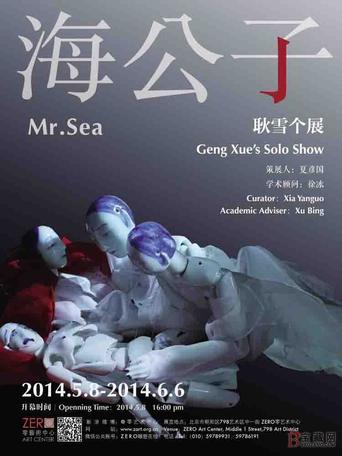Mr. Sea
Adapted from a story by Pu Song-Ling (1640-1715) from the Qing dynasty, about a curious scientist exploring a mysterious desert island in the South Chinese Sea. Here, he comes across a prostitute and a snake. They get caught up in a repetitive pattern. The perfection of shining china in cool tones contrasts sharply with the gory story. Ingenious application of traditional ceramics that the Qing dynasty is famous for. Adapted from a story by Pu Song-Ling (1640-1715) from the Qing dynasty, about a curious scientist exploring a mysterious desert island in the South Chinese Sea. Here, he comes across a prostitute and a snake. They get caught up in a repetitive pattern. The perfection of shining china in cool tones contrasts sharply with the gory story. Ingenious application of traditional ceramics that the Qing dynasty is famous for. Adapted from a story by Pu Song-Ling (1640-1715) from the Qing dynasty, about a curious scientist exploring a mysterious desert island in the South Chinese Sea. Here, he comes across a prostitute and a snake. They get caught up in a repetitive pattern. The perfection of shining china in cool tones contrasts sharply with the gory story. Ingenious application of traditional ceramics that the Qing dynasty is famous for. Adapted from a story by Pu Song-Ling (1640-1715) from the Qing dynasty, about a curious scientist exploring a mysterious desert island in the South Chinese Sea. Here, he comes across a prostitute and a snake. They get caught up in a repetitive pattern. The perfection of shining china in cool tones contrasts sharply with the gory story. Ingenious application of traditional ceramics that the Qing dynasty is famous for.



 AD
AD